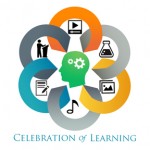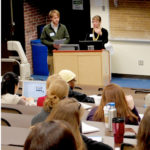‘students as producers’
medicine and magic: students as producers in the humanities
apr. 16, 2014—by derek bruff, cft director the post below is about a fantastic “students as producers” course taught by vanderbilt’s holly tucker. for more ideas on engaging students as producers of knowledge, come to the cft’s celebration of learning next monday. the event will feature a highly engaging keynote by georgetown university’s randy bass, as well...
vanderbilt sharefest: strategies for communicating complex ideas
apr. 14, 2014—by derek bruff, cft director below is a recap of last week’s vanderbilt sharefest. for more ideas on engaging students as producers of knowledge, come to the cft’s celebration of learning next monday. the event will feature a highly engaging keynote by georgetown university’s randy bass, as well as an exhibition of more than 25...
students as producers in social science courses
apr. 7, 2014—by julie lapidot, cft student assistant the following is a summary of a conversation on teaching the cft hosted earlier this semester, part of our “students as producers” theme year. for more ideas on helping students become not only consumers of knowledge, but producers and creators, come to our celebration of learning on april 21st....
a look at student learning across campus
mar. 12, 2014—by derek bruff, cft director original research by first- and second-year undergraduates conducted within a biology lab course. original short stories written for a spanish course. mri machines built by engineering students in a design course. video documentaries created by future teachers to explore social and philosophical aspects of education. handcrafted creations in which theatre...
students as producers: initiatives at other universities
mar. 3, 2014—by derek bruff, cft director last month, i reported that the 2014 horizon report on current trends in educational technology identified as one of its six key trends a shift from students as consumers (of information, of content, of knowledge) to students as creators. from the report: “a shift is taking place in the focus...
students as producers of disciplinary habits
feb. 14, 2014—by nancy chick, cft assistant director the cft’s recent teaching visit hosted by phil ackerman-lieberman illustrated our 2013-14 theme of students as producers in a way that’s different from our previous examples. these other instances typically focus on specific course assignments that engage students in actively creating something, often directing their work toward authentic audiences...
the power of design: what design projects can teach our students—and us
feb. 13, 2014—by cynthia j. brame, assistant director this year, the cft has adopted a “students as producers” theme, exploring ways that instructors can scaffold their classes to help students do meaningful, creative work. design projects, the linchpin of any engineering curriculum, illustrate some of the key benefits and lessons of helping your students be producers. i’ve...
from the director: 2014 horizon report, randy bass keynote
feb. 7, 2014— by derek bruff, cft director earlier this week, the new media consortium and the educause learning initiative released the 2014 horizon report, an annual report on current trends in technology in higher education. one of the six key trends identified in this year’s report is the shift from students as consumers (of information, of...
learn to produce or produce to learn?
feb. 5, 2014—vanderbilt faculty members have found a variety of ways to engage students as producers in their classes and guided students to produce work for authentic audiences. the cft celebrated its 16th annual graduate student teaching event for professional development (gradstep) by focusing on our theme for this year, “students as producers.” the day started with a...
students as producers + educational technology
jan. 25, 2014—by derek bruff, cft director i’m presenting this morning during the first set of concurrent sessions at the cft’s gradstep event for graduate students and post-docs. the session is titled “using technology to support students as producers of knoweldge,” and it combines two of my favorite topics: students as producers plus educational technology. certainly, technology...






